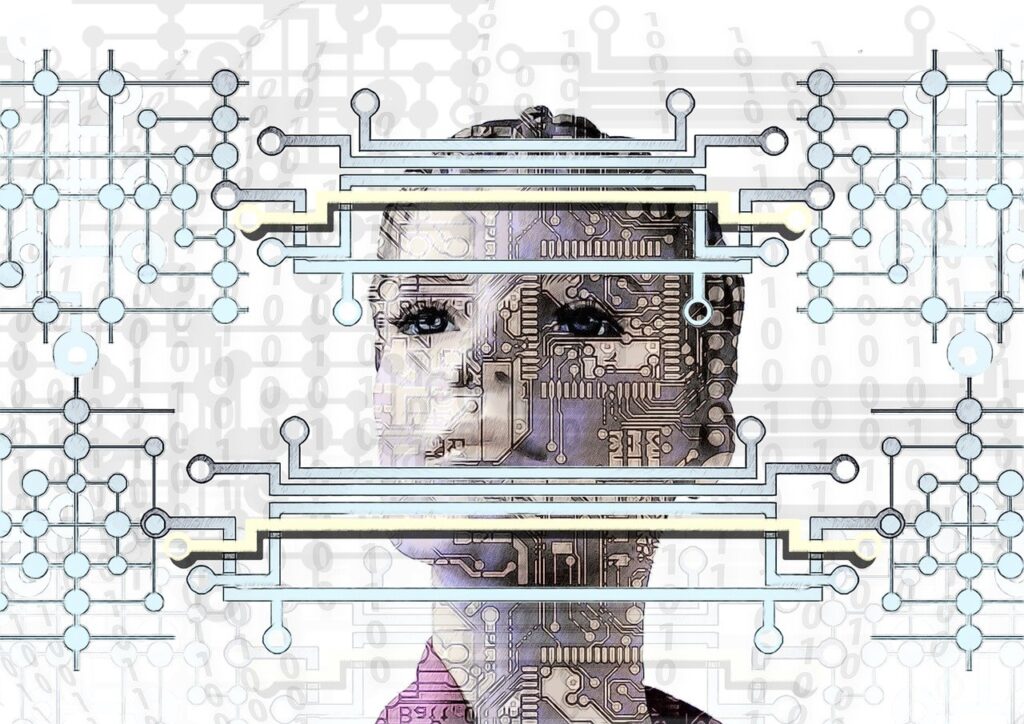The world of cybersecurity is in a constant state of flux, with hackers continually devising new strategies to breach defenses. To combat these threats, cybersecurity experts are turning to artificial intelligence (AI) as a powerful tool. However, this technological arms race has evolved into a battle of AI vs. AI, where both defenders and attackers harness the capabilities of artificial intelligence for their purposes. In this article, we’ll explore this intriguing conflict and its implications for the future of cybersecurity.

The Role of AI in Cybersecurity
Artificial intelligence has found a natural home in the realm of cybersecurity. It offers several advantages for protecting digital systems:
-
Threat Detection: AI can swiftly analyze vast quantities of data to identify unusual patterns or activities that may indicate a security threat.
-
Real-time Monitoring: AI provides continuous monitoring and can instantly alert security teams to potential breaches.
-
Machine Learning Models: AI-driven machine learning models improve the accuracy of threat detection by adapting to emerging threats and evolving attack tactics.
-
Automation: AI automates routine tasks, allowing cybersecurity professionals to focus on more complex issues.
-
Vulnerability Assessment: AI helps identify and prioritize vulnerabilities in digital systems, enabling organizations to address the most critical ones first.
-
Incident Response: AI streamlines incident response processes, reducing the time required to mitigate threats.
The Use of AI in Hacking
Hacking has also embraced the power of AI, ushering in a new era of threats. Here are ways in which AI is used by hackers:
-
Automated Attacks: AI allows hackers to automate their attacks, making it possible to target a large number of systems simultaneously.
-
AI-Powered Malware: Malware equipped with AI capabilities can adapt to security measures and evade detection more effectively.
-
Phishing and Social Engineering: AI can generate convincing phishing emails and messages, increasing the likelihood of individuals falling victim to these attacks.
-
Credential Cracking: AI can accelerate the process of cracking passwords and bypassing authentication measures.
-
AI-Enhanced Reconnaissance: Hackers use AI to gather information about potential targets, making their attacks more precise and effective.
-
Real-time Adaptation: AI allows hackers to adjust their tactics in real-time, reducing the risk of detection.
The Battle Within Networks
The battle between AI and AI unfolds within networks, with defenders and attackers constantly seeking the upper hand. This ongoing struggle has several implications:
-
Increased Complexity: AI-driven attacks are more sophisticated, requiring cybersecurity experts to develop more advanced defensive measures.
-
Real-time Countermeasures: AI in cybersecurity must evolve to detect and respond to AI-driven attacks in real-time, ensuring that security remains effective.
-
Ethical Concerns: The use of AI in hacking raises ethical questions, particularly in areas like deepfakes, where impersonation can have far-reaching consequences.
-
Competition for Talent: As AI becomes more integrated into cybersecurity, there is growing competition for talent skilled in both cybersecurity and AI.
-
AI-Enhanced Defense: Cybersecurity experts must continue to leverage AI for defensive purposes, using it to adapt and respond to evolving threats.
Challenges for AI in Cybersecurity
AI in cybersecurity faces unique challenges:
-
Adversarial AI: Hackers can use adversarial AI to confuse or evade AI-powered security systems, creating a cat-and-mouse game.
-
Privacy Concerns: The collection and analysis of vast amounts of data raise concerns about privacy and data protection.
-
Regulation and Ethics: Governments and organizations are developing regulations to govern the use of AI in various contexts, including cybersecurity.
-
AI Bias: Biases in AI algorithms can have unintended consequences in cybersecurity, potentially favoring certain types of threats or targets.
The Future of AI in Cybersecurity
AI is here to stay in the realm of cybersecurity. Its role will continue to expand, and its impact will be profound. Some key trends to watch for include:
-
AI-Enhanced Threat Detection: AI will become increasingly sophisticated in detecting emerging threats, allowing for quicker responses.
-
Behavioral Analysis: Behavioral analysis will play a more prominent role in identifying unusual activities within networks.
-
AI-Driven Security Automation: Automation powered by AI will handle routine security tasks, allowing human experts to focus on more complex issues.
-
Quantum Computing Challenges: The advent of quantum computing will pose new challenges, necessitating AI-driven defenses to counter emerging threats.
-
AI-Enhanced Ethical Hacking: Ethical hackers will employ AI to discover vulnerabilities in systems, helping organizations bolster their security.
-
Improved Regulation: Governments and organizations will work to develop clearer regulations governing the use of AI in cybersecurity.
Conclusion
The battle of AI vs. AI in cybersecurity represents a dynamic and evolving contest between defenders and attackers. While AI empowers cybersecurity experts to detect and respond to threats with greater efficiency, it also provides hackers with the tools to launch more sophisticated and automated attacks.
As the use of AI in cybersecurity continues to expand, it is essential for organizations, governments, and individuals to stay informed about emerging threats, regulations, and best practices. The collaboration of experts in AI and cybersecurity will be crucial in maintaining the upper hand in this ongoing technological battle and ensuring the protection of digital systems and data.